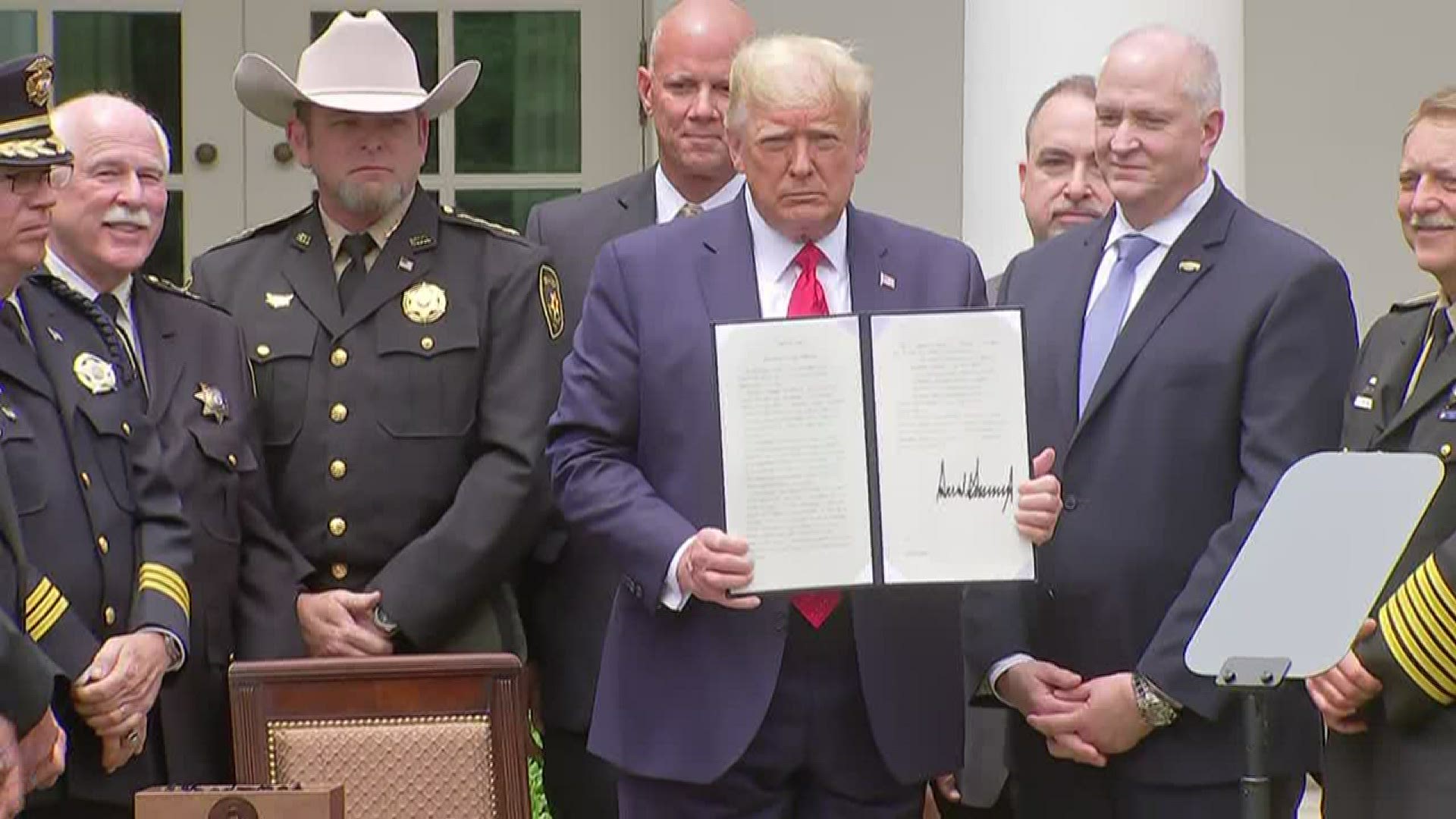WASHINGTON — President Trump signed an executive order Tuesday to encourage better police practices across the country.
One aspect of that order was more funding for mental health co-responder teams, that can mean a couple of different things though.
Let's go beyond the headline and look at what a mental health co-responder team is and what it could look like.
When you hear the term "co-responder: it usually means a two person team that responds to a call. One law enforcement officer and one mental health or behavioral specialist. The idea is that by having both on a call, they can de-escalate the situation and decide if a person needs behavioral health help.
The Florida Sheriff's Association reported in 2014 that every local county had some sort of crisis intervention team or had received funding to create one.
Is this extra money worth it? Do these teams work?
The National League of cities and Policy Research Incorporated looked at police departments across the country and found that yes, the teams help people access care faster, reduce the cost of calls, and increase the efficiency of the officers time. They also saw a drop in arrests, use of force and repeat calls.
- Bucs release first photos of Tom Brady in team uniform
- Florida sees highest number of COVID-19 cases yet: 2,783 in one day
- Nurse and theme park workers among 16 men arrested for child porn, Polk sheriff says
- Gatlinburg Skybridge glass cracked by visitor
- President Trump signs executive order on policing reform
- CDC posts everyday tips for minimizing COVID-19 risk
- Epidemiologist says data can be misleading and coronavirus is spreading in Florida
FREE 10 TAMPA BAY APP:
►Stay In the Know! Sign up now for the Brightside Blend Newsletter



